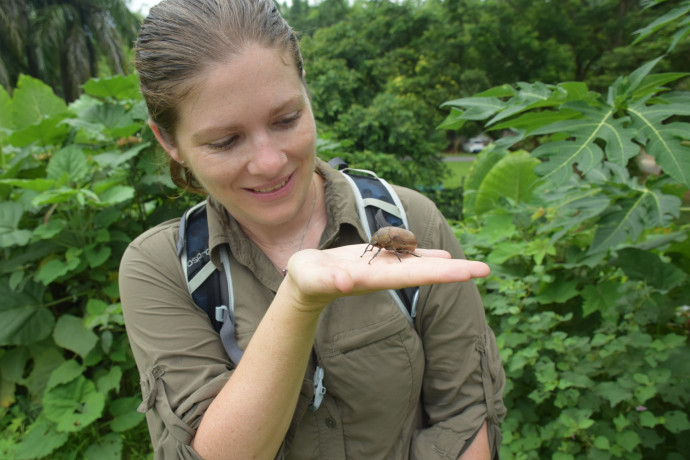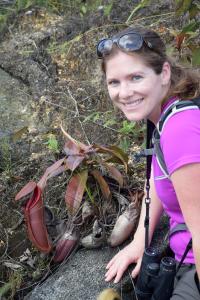Christina Painting

2018: Dr Christina Painting, University of Auckland, has been awarded a Rutherford Foundation postdoctoral fellowship for research entitled: “Understanding the interacting effects of precopulatory and postcopulatory selection on reproductive success using the New Zealand giraffe weevil.”

Dr Christina Painting (Photo: Supplied)
Throughout the animal kingdom, competition for mates has driven the evolution of a spectacular array of exaggerated male traits, including those used as weapons. Although weaponry can help males gain more mating opportunities by winning fights to mate with females, bearing these traits only partly determines their reproductive success. When females mate with multiple males (polyandry), competition continues after mating, as sperm race to fertilise eggs. We now know that sexual selection can operate both before (precopulatory) and after (postcopulatory) mating, but we still know very little about the relative importance of these traits and how they interact to produce reproductive success. In particular, few studies have quantified sexual selection among wild populations, despite this being crucial for understanding how mating systems evolve. This is because it is difficult to find suitable species that are easily observable in the wild. Here in Aotearoa, however, the New Zealand giraffe weevil (Lasiorhynchus barbicornis) is an excellent model for selection studies in the wild.
Dr Christina Painting from The University of Auckland has been awarded a Rutherford Foundation Postdoctoral Fellowship to use the New Zealand giraffe weevil to address this central problem in evolutionary ecology: What maintains variation in precopulatory and postcopulatory traits? She will use social network theory to study the complex interactions between individuals, in combination with classical field-based behavioural studies and DNA paternity testing. This will allow her to understand how complex interactions among individuals can influence both pre- and postcopulatory sexual selection. In collaboration with researchers at Te Punaha Matatini and leading international experts, this innovative project will promote Aotearoa New Zealand as a world leader in sexual selection research and increase the profile of New Zealand native invertebrates.
